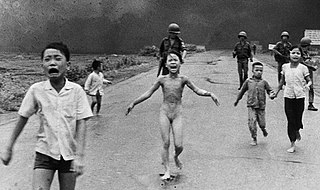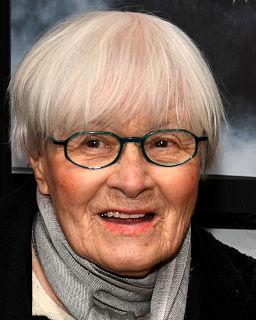A Quote by Phan Thi Kim Phuc
If the picture hadn't been taken, people wouldn't know what happened in the war.
Related Quotes
If you want me to explain the picture, if you put it in reality, then the mystery goes away. The situation just catches you and you think it is absurd or mysterious and you just take the picture. You dont want to see the bare reality of what happened. I took the picture as the picture, not as the realistic story of what happened.
I myself feel that our country, for whose Constitution I fought in a just war, might as well have been invaded by Martians and body snatchers. Sometimes I wish it had been. What has happened, though, is that it has been taken over by means of the sleaziest, low-comedy, Keystone Cops-style coup d'etat imaginable.
I think the best war photos I have taken have always been made when a battle was actually taking place - when people were confused and scared and courageous and stupid and showed all these things. When you look at people right at the very moment of truth, everything is quite human. You take a picture at this moment with all the mistakes in it, with everything that might be confusing to the reader, but that's the right combat photo.
There's been no major motion picture released by a studio, no independent motion picture, in theaters, with King at the center, in the 50 years since these events happened, when we have biopics on all kinds of ridiculous people. And nothing on King? No cinematic representation that's meaningful and centered.
A picture is what it is and I've never noticed that it helps to talk about them, or answer specific questions about them, much less volunteer information in words. It wouldn't make any sense to explain them. Kind of diminishes them. People always want to know when something was taken, where it was taken, and, God knows, why it was taken. It gets really ridiculous. I mean, they're right there, whatever they are.
We in politics are accustomed to seeing reality firsthand and then watching its distant cousin, events as portrayed by the media, unfold on our televisions. We know that what happened in Congress and what is reported to have taken place are two very different things. But that disjuncture, so familiar to politicians, is new to the viewing public. By seeing war and war coverage juxtaposed nightly on their screens, Americans have learned the crucial lesson: not to trust the news anchors.
Democracy takes work. That's the thing we're really finding out, that, you know, in many ways, you know, the past two decades we've taken for granted all of the extraordinary achievements of the post-war generation. You know, building this global alliance structure that has kept the peace across the North Atlantic since World War II. Building all of these institutions, building all this remarkable technology. And people have privatized. You know, you can now, you don't have to go outdoors much, the whole world comes to you.
With a historical novel you know that liberties are being taken. Since Walter Scott, we know that poetic license, dramatic license, that events been conflated and that liberties have been taken, characters ditto, dates rearranged. But people don't seem to understand that movies are fictions, they are dramatizations, at least historical movies, and we should accord the moviemakers some of the same understanding and latitude. When you go to a movie you know it's a dramatization and not history.





































